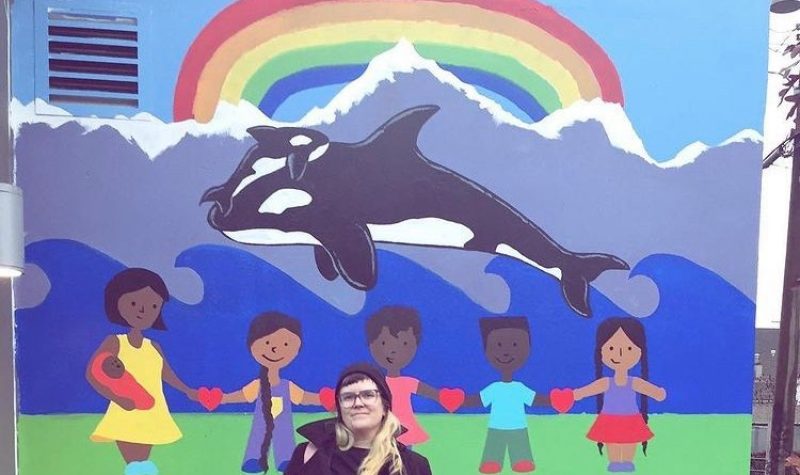The Pounds (Preventing Overdose Un Doing Stigma) Project, a non-profit organization operating in Prince George, will soon be re-opening their overdose prevention site, Two Doors Down, following COVID-19 restrictions imposed last year. Since the beginning of the COVID-19 pandemic, deaths due to overdose in British Columbia have sky-rocketed compounding an already dire situation. Juls Budau, a director at the Pounds Project and masters student in the department of Social Work at UNBC, says that gender can play a role in people’s ability to access resources and add an additional layer of vulnerability.
“One huge problem is when you're a mother, that really impacts your drug use and how that is viewed”, says Budau. For women with children, accessing drug treatment is complicated because it comes with the risk of having your children taken from you. This is especially true for Indigenous women. As reported by the Tyee, Indigenous children are apprehended by the Ministry of Children and Family Development (MCFD) at a hugely disproportionate rate; nationally, 52 percent of youth in government care under 15 are Indigneous despite making up just under 8 percent of the population. The number increases when looking specifically at North Central BC; 81 percent of children and youth in care are Indigenous. “If you’re a mother and using drugs, you’re much more likely to hide your drug use”, says Budau, which can lead to a higher likelihood of overdose death as people feel forced to use alone and may avoid seeking out harm reduction services. To add to this, the trauma associated with the removal of children from their mothers can exacerbate the situation as Budau points out: “Overdose death risk for a woman with children goes up so much higher when the children are removed from her home”.
Women also experience additional layers of vulnerability as a result of the structural violence of drug policies that force people to use drugs outdoors and under unsafe circumstances. As Budau states, the increasing prevalence of highly concentrated benzodiazepine (benzo dope) in drug supplies has implications for women forced to use outdoors. Benzo dope “can make people fall asleep for two days and especially if your a women and your forced to use outside, that puts you in a very vulnerable position where you are at risk for sexual violence”. Overdose death as a result of benzo dope is on the rise across the province.
Despite barriers to accessing harm reduction services and additional stigma, women die as a result of drug overdose at lower rates than men. “I think the reason for that, and this is from my experience working in the Downtown Eastside [of Vancouver], is that women generally create these care networks… Women spend time together. They watch out for each other. They do drugs together. Whereas many men tend to be more isolated.” Budau says that while women who use drugs are often framed as chaotic and irresponsible, they are in fact most often skilled caregivers and community builders.
The Pounds Project overdose prevention site, Two Doors Down, is open to all genders and will continue to rely on the lived experience of the community to inform their policies and practices upon re-opening. As Budau steps into the role of helping managing the space, their focus will be on listening.
“I hope we can be aware of these things. I say I am a feminist. I have a feminist lens but as a white person, as a not injection drug user, there are things that I’m going to be blind to, so I need to make sure that I’m listening.”
Listen to the interview on CFUR-FM:


